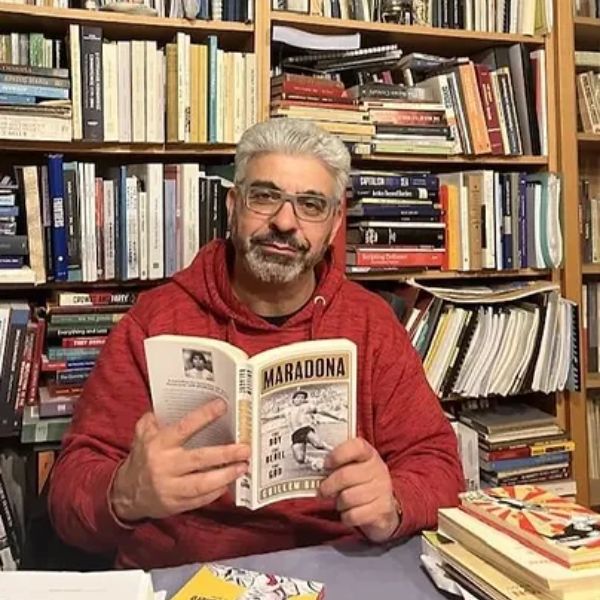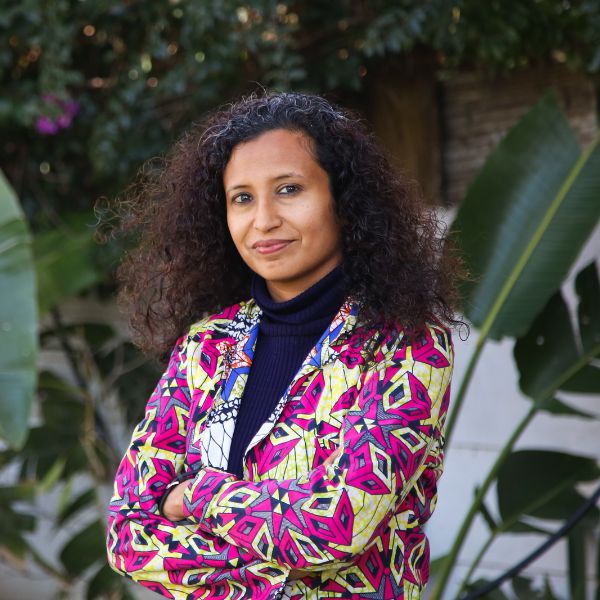Our collaborative team includes faculty members and researchers from the University of Nicosia (Cyprus), University of Kiel (Germany), and Portland State University (USA).

Dr Nicos Trimikliniotis
Professor,
University of Nicosia
Dr Nicos Trimikliniotis, Professor, University of Nicosia
Nicos Trimikliniotis is a Professor of Sociology, Social Sciences and Law and is a trained Barrister at Law. He leads the Centre for Fundamental Rights at the University of Nicosia that coordinates the experts of the Cypriot team for the Fundamental Rights Agency of the EU. He is the National expert for the Odysseus Network, and for the Global Citizenship Observatory (GLOBALCIT), He was the national expert on the Free Movement of Workers (2008-2012), the Independent Network of Labour Migration and Integration Experts (LMIE-INET) and the International Organization for Migration (2009-12). He has researched subjects such as social transformation, border regimes, conflict, state theory, migration and asylum law, citizenship, labour law, and discrimination, and has published numerous expert reports on fundamental rights in Cyprus. Publications (selection): Scripting of Defiance: Four Sociological Vignettes (Tulika Press/ Columbia University Press); Migration and the Refugee Dissensus in Europe: Borders, Security and Austerity (Routledge, 2020); Mobile Commons, Migrant Digitalities and the Right to the City, (Palgrave, 2015), Rethinking the Free Movement of Workers: The European Challenges Ahead (University of Nijmegen, 2009).

Dr Michaelangelo Anastasiou
Research Associate,
University of Nicosia
Dr Michaelangelo Anastasiou, Research Associate, University of Nicosia
Michaelangelo Anastasiou holds a PhD in Sociology specializing in studies of politics, nationalism, populism, the state, democracy and technology. He is principally interested in how socio-political and technological configurations are implicated in: Reformulations of citizenship and rights, peace and conflict, power centralization and processes of (de)democratization. His current research examines how artificial intelligence is employed in state and corporate surveillance and how conditions of conflict exacerbate illegal and unethical uses of technology. His recent publications have examined the relationship between populism and technology and deployments of artificial intelligence and dual-use technologies in small states. Selected Publications: “Surveillance, De-Democratization and the Digital States of Exception: Cyprus, a Small State Surveillance-Post” (with Trimikliniotis & Petrikkos, in Digital Environment and Small States, Routledge, Forthcoming 2025). “Populism and the Mirror of Technology” (in Populism and Time. Edinburgh University Press, 2024); Nationalism and Hegemony: The Consolidation of the Nation in Social and Political Life (Routledge, 2022).

Dr Maria Kouvarou
Research Affiliate,
Centre for Fundamental Rights,
University of Nicosia
Dr Maria Kouvarou, Research Affiliate, Centre for Fundamental Rights, University of Nicosia
Maria Kouvarou holds a Ph.D. in Music from Durham University. Her research interests include popular music and society, cultural heritage, and critical theory. Her research has examined themes relating to issues of globalization, the public sphere, mass media, ideology, identity, postcoloniality and conflict. She has published articles in Popular Music and Society, Historia Critica, and Popular Music among others. She has recently collaborated with the Department of Social and Political Sciences of the University of Cyprus for the research programme “Music, dialect, and the re-inventions of folk traditions in Cypriot modernity (MU.DI.RE.)” that was funded by A.G. Leventis foundation.

Dr Giorgos Charalambous
Associate Professor,
University of Nicosia
Dr Giorgos Charalambous, Associate Professor, University of Nicosia
Giorgos Charalambous holds a PhD in Politics and is an Associate Professor of Political Science, working in the field of comparative European politics and political sociology. He specializes in party politics, political ideologies, mobilisation, political behaviour, the domestic politics of European integration and southern Europe. He also has a special interest in theories and debates of critical political economy. Giorgos is co-coordinator of the BA in European Studies and International Relations at the University of Nicosia, book review editor of The Cyprus Review and co-coordinator of the Communism Specialist Group of the Political Studies Association (PSA), as well as member of the Research Advisory Group for the Leventis Foundation Research and Innovation Programme on Cyprus, at the Hellenic Observatory, London School of Economics.

Dr Mike Hadjimichael
Professor,
University of Nicosia
Dr. Mike Hadjimichael, Professor, University of Nicosia
Mike Hajimichael teaches Communications and is the head of the department at the University of Nicosia, Cyprus. Media representation and popular music, citizen media, colonial literature, applied ethnomusicology, and semiotics are all areas that interest his studies and research. His most recent book, “Bob Marley and Media Representation and Audiences” (Rowman & Littlefield, 2023), has been promoted at academic conferences and keynote addresses all around the world, where he has been asked to speak, including The 26th Annual Bob Marley Lecture at The University of West Indies in Jamaica (2023). Haji Mike, the stage name under which he performs as a poet, musician, DJ, radio host, and creative author, is well known all over the world. His written work and scholarly studies have significantly benefited from these auto-ethnographic experiences, representing an artist and academic deeply rooted in contemporary and historical contexts as well as the technological advances in music production processes and platforms.

Dr Christos Hadjioannou
Associate Lecturer
University of Nicosia
Dr Christos Hadjioannou, Associate Lecturer, University of Nicosia
Christos Hadjioannou was awarded his PhD in Philosophy by the University of Sussex in 2015. He specializes in the philosophy of technology, mindfulness and affect, as well as 20th century continental philosophy. He edited Heidegger on Affect (Palgrave Macmillan, 2019) and co-edited The Routledge Handbook of the Phenomenology of Mindfulness (Routledge, 2024), Towards a New Human Being (Palgrave Macmillan, 2019) and Heidegger on Technology (Routledge, 2018). His is currently examining the ethical and ontological implications of AI-powered predictive algorithms.

Dr Nicos Philippou
Lecturer
University of Nicosia
Dr Nicos Philippou, Lecturer, University of Nicosia
Nicos Philippou lectures at the Department of Communications at the University of Nicosia. He has published on photography and visual culture in Cyprus. He is the author of Coffee-house Embellishments (2008), co-editor of Re-Envisioning Cyprus (2010) and Photography and Cyprus: Time, Place and Identity (2014). He co-authored “Greek Cypriot Locality: (Re)defining our Understanding of European Modernity” in A Companion to Modern Art (2019), “Miniature Landscapes: Sharqi, the Instant Photograph, and the Re-invention of Cyprus” in photographies (2019), and “Nicosia’s Queer Art Subculture: Outside and Inside Formal Institutions” in Contemporary Art in Cyprus: Politics, Identity and Culture Across Borders (2020).

Corina Demetriou
Director,
Centre for Fundamental Rights,
University of Nicosia
Corina Demetriou, Director, Centre for Fundamental Rights, University of Nicosia
Corina Demetriou is a lawyer and legal researcher with over 15 years of experience in research for EU projects with expertise on all MAF areas, Director of Symfiliosi and legal expert of the Cypriot FRANET team since 2014. From 2007 onwards, she serves as National Expert of the European Network of Legal Experts in the Anti-discrimination field (www.equalitylaw.eu). In recent years she authored a number of legal expert reports for various EU institutions and EU agencies under research projects led by EU: hate speech and hate crime, children in judicial proceedings, gender-based violence, FGM, children with disabilities, the impact of the crisis on fundamental rights, discrimination and the 2020 agenda, the legal migration directives and others.

Dr Amrita Pande
Professor,
University of Cape Town
Dr Amrita Pande, Professor, University of Cape Town
Amrita Pande is Professor of Sociology at University of Cape Town, South Africa. Her research lies at the intersection of gender, globalization and the intimate, with a focus on transnational reproduction, repro-genetic technologies, and multimodal ethnography. Her most recent books include Epistemic Justice and the Postcolonial University (With Chaturvedi and Daya, Wits and NYU Press, 2023), Birth Controlled: Selective Reproduction and Neo Eugenics in India and South Africa (Manchester Univ Press, 2022), and Scripting defiance: Four Sociological Vignettes (With Ari Sitas, Sumangala Damodaran, Wiebke Keim, and Nicos Trimikliniotis, Tulika Books and Columbia University Press, 2022). Her award-winning book Wombs in Labor: Transnational Surrogacy in India (Columbia University Press 2014) has recently been released in India (Primus Press). Over the past two decades she has conducted multi-sited research on fertility clinics, traveling egg provision and cross-border surrogacy in India, Cambodia, Ghana and South Africa. She has written for national newspapers across the world and has appeared in Laurie Taylor’s Thinking Allowed on the BBC, Sarah Carey’s Newstalk on Irish radio, DR2 Deadline on Danish National television, TRT world, Turkey, and on SABC2 and SAfM, South Africa to discuss her work on the global fertility industry. She is also an educator-performer touring the world with a performance lecture series, Made in India: Notes from a Baby farm (co-produced by Riksteatern, Sweden and Global Studies Production, Denmark) based on her ethnographic work on surrogacy. Made in India premiered at Södra Teatern, Sweden, and has toured over 20 cities since 2012. In 2022 Amrita started the Women Walk at Midnight (WWaM) movement in South Africa, to normalize the presence of women in public spaces at night and addressed the 23rd International Walk21 Conference, in Kigali, Rwanda in 2023.

Dr Harry Anastasiou
Professor,
Portland State University
Dr Harry Anastasiou, Professor, Portland State University, USA
Harry Anastasiou is a Professor of International Peace and Conflict Studies and former Director of the Conflict Resolution Program at Portland State University, USA. He has taught, published and lectured widely on nationalism, ethnic conflict, multi-dimensional peacebuilding, and international peace and conflict issues. In his lectures and publications, he has addressed the worldwide relapse of ethnocentric and bellicose nationalism and its effects on democracy, human rights, the rule of law and international relations, with particular attention on the implications for peace and security. Building on his experience as a peace and conflict studies scholar and practitioner, Anastasiou has served and contributed to numerous civil society organizations engaged in peacebuilding initiatives, facilitation and mediation. Professor Anastasiou has been an invited lecturer for the “Great Decisions” series of the World Affairs Council, as well as for The International Visitor Leadership Program of the U.S. Department of State, among others. He has also served as an invited consultant to the U.S. Department of State on issues pertinent to the Eastern Mediterranean.

Dr Vassilis Tsianos
Professor,
University of Kiel
Dr Vassilis Tsianos, Professor, University of Kiel, Germany
Vassilis Tsianos is a Professor of sociology at University of Kiel. He is a migration expert who has developed innovative research methods in specialist areas which have seen a massive development over the last years. These include the innovative ‘nethography’ of border regime methodology, methods to examine data processing and surveillance and other methods to study digitalities, utilising these methods to study migration, asylum, racism, discrimination, borders, data protection and surveillance, EU integration and fundamental rights. These methods assist scholars immensely in explaining and understanding the transformations of social life in the current era and the operational effectiveness of proper monitoring of fundamental rights and to assess the sociological implications for policy-making.

Dr Ari Sitas
Emeritus Professor,
University of Cape Town
Dr Ari Sitas, Emeritus Professor, University of Cape Town
Ari Sitas was a senior fellow and research associate in a number of institutions: The University of California Berkeley, Ruskin College and Oxford University. He was a president of the South African Sociological Association, a Vice-President of the International Sociological Association and an Executive member of the African Sociological Association as well. He was also a Fellow at the Institute of Advanced Studies, Jawaharlal Nehru University, New Delhi and, a Guest Professor at the Albert-Ludvigs University of Freiburg. I will be the incumbent to the Baghat Singh Chair of Historical Studies at the Jawaharlal Nehru University as from 2006. He chairs the Board of the National Institute for the Humanities and the Social Sciences and I direct the South African BRICS Think Tank which serves on the BRICS Think Tanks Council. I have also been appointed on the board of the National Research Foundation.

Dr Bernd Kasparek
Associate Professor
Delft University of Technology
Dr Bernd Kasparek, Associate Professor Delft University of Technology
Bernd Kasparek is an Assistant Professor for Programmable Infrastructures at Delft University of Technology, Netherlands. He is currently researching how the digital infrastructures intersect with Europeanisation and European governance. Previously, he has worked on European border infrastructures. In 2021, his book “Europa als Grenze. Eine Ethnographie der Grenzschutz-Agentur Frontex” (Europe as Border. An Ethnography of the European Border Agency Frontex) was published by transcript publishing company. Bernd is a member of Rat für Migration (Council for Migration), an association of more than 200 migration researchers based in Germany.

